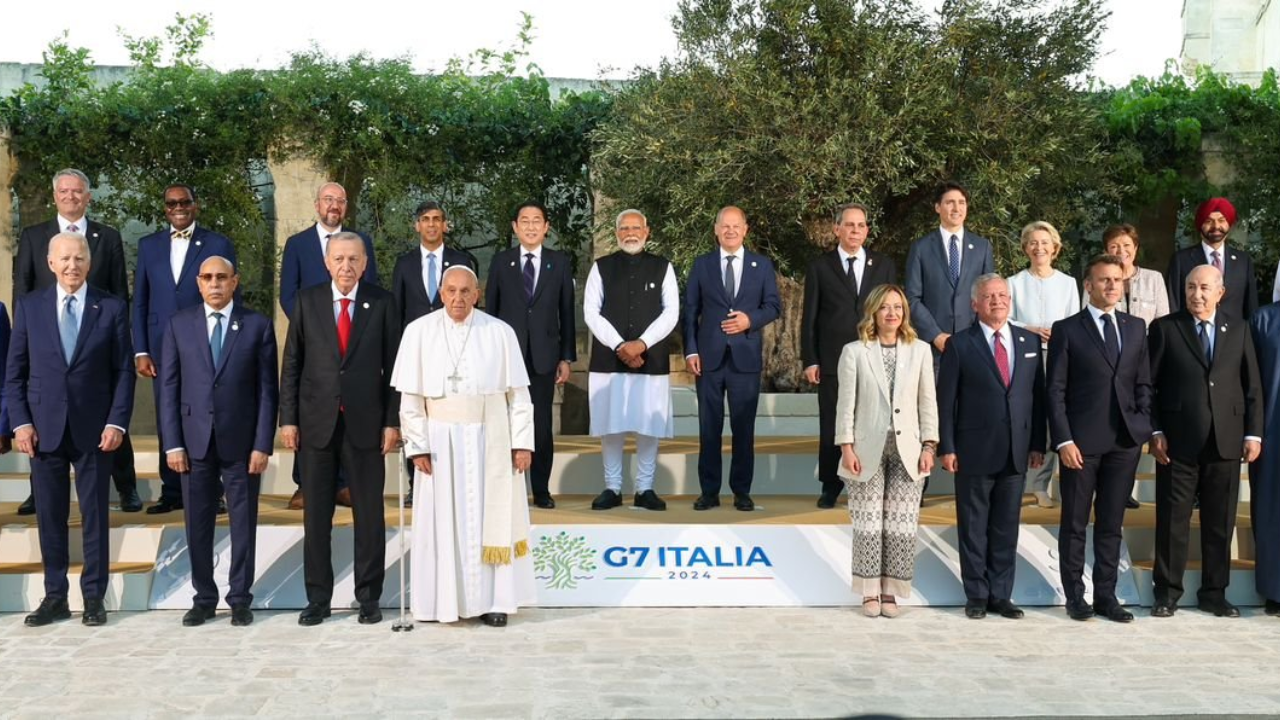NEW DELHI: The G7 countries have committed to promoting the India-Middle East-Europe Economic Corridor (IMEEEC), in what is seen as a boost to the strategic initiative amid tension in West Asia, which may have delayed work on the project.
While the Indian govt has started its end of the work on the initiative that was announced on the sidelines of the G20 Leaders Summit in Delhi last year, there are rail links in Saudi Arabia and some other countries that need to be established.
PM Modi attended the meeting as India was a special invitee along with Brazil, Argentina, UAE and Turkiye, among others.
The backing for IMEEEC came along with a similar statement of support by G7 for the Lobito Corridor in Central Africa and Luzon Corridor and the Middle Corridor. IMEEEC is to connect ports on India’s west coast to UAE, from where goods are to be shipped by rail to Europe, and potentially open greater access to the African continent.
Many experts have argued that the IMEEEC would have helped prevent some of the disruption caused by the tension around the Red Sea and allowed for freer movement of goods to Europe. The Houthi attacks have caused massive disruptions, forcing ships to take a much longer route, delaying shipments by 30 days or more. The G7 members also hit out at the Houthis, condemning their attacks on vessels.
“These illegal attacks must end. We call for the immediate release by the Houthis of the Galaxy Leader and its crew. We reiterate the right of countries to defend their vessels, in line with UNSCR 2722 and in accordance with international law… The continuing Houthi attacks in the Red Sea risk destabilising the region, stopping freedom of navigation and trade flows and endangering the UN-led roadmap towards peace in Yemen,” said the communique issued at the end of the meeting in Apulia, Italy.
While the Indian govt has started its end of the work on the initiative that was announced on the sidelines of the G20 Leaders Summit in Delhi last year, there are rail links in Saudi Arabia and some other countries that need to be established.
PM Modi attended the meeting as India was a special invitee along with Brazil, Argentina, UAE and Turkiye, among others.
The backing for IMEEEC came along with a similar statement of support by G7 for the Lobito Corridor in Central Africa and Luzon Corridor and the Middle Corridor. IMEEEC is to connect ports on India’s west coast to UAE, from where goods are to be shipped by rail to Europe, and potentially open greater access to the African continent.
Many experts have argued that the IMEEEC would have helped prevent some of the disruption caused by the tension around the Red Sea and allowed for freer movement of goods to Europe. The Houthi attacks have caused massive disruptions, forcing ships to take a much longer route, delaying shipments by 30 days or more. The G7 members also hit out at the Houthis, condemning their attacks on vessels.
“These illegal attacks must end. We call for the immediate release by the Houthis of the Galaxy Leader and its crew. We reiterate the right of countries to defend their vessels, in line with UNSCR 2722 and in accordance with international law… The continuing Houthi attacks in the Red Sea risk destabilising the region, stopping freedom of navigation and trade flows and endangering the UN-led roadmap towards peace in Yemen,” said the communique issued at the end of the meeting in Apulia, Italy.
